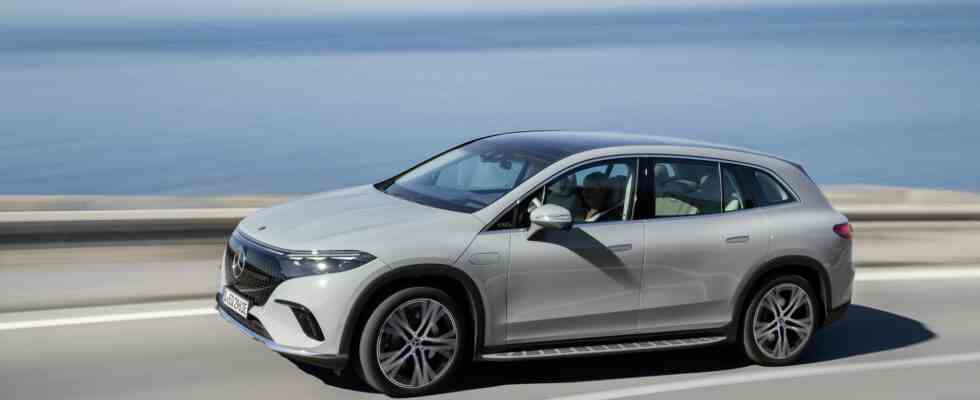Status: 08/26/2022 11:28 am
With the new rules for the e-car premium, there will no longer be any government subsidies for numerous models from German manufacturers. The reason is their strategy of primarily offering very expensive electric vehicles.
Due to the planned changes in the so-called environmental bonus for electric vehicles, according to the government, many models from German car companies are no longer eligible for state subsidies. This is due to the fact that most eligible vehicles from German manufacturers can be assigned to the high-priced segment.
As can be seen from a response from the federal government to a question from the CSU member of the Bundestag Ulrich Lange, only a fraction of the battery vehicles on offer from BMW, Mercedes-Benz and Audi will be eligible for funding from 2024. The “Augsburger Allgemeine” reported on the letter.
Only two BMW models will be eligible in the future
If from 2024 only e-cars are subsidized that are cheaper than 45,000 euros, the number of eligible models at Mercedes-Benz will drop from the current 40 to seven, at BMW from 47 to two and at Audi from 13 to five. Manufacturers such as Hyundai, Kia and Seat remain in state support for all current purely electric models.
German manufacturers have so far offered comparatively few models in the medium and small vehicle segment for electric cars. This is also due to the fact that the profit margins are higher for the expensive premium models.
The CSU politician Lange criticized the changes to the environmental bonus with a view to the industry: “Instead of presenting an overall transport policy strategy for climate-friendly individual transport, the traffic light with its economic policy endangers jobs in the key German industry,” criticized the CSU politician.
15 million electric cars targeted
According to the government response, the abolition of subsidies for plug-in hybrids will also hit the premium manufacturers particularly hard: According to this, 68 Mercedes-Benz models will be excluded from the subsidy, BMW 34 and Audi 27 models. From September next year, only private individuals will receive state funding.
To date, 78 percent of the subsidized vehicles at Mercedes have not been used privately, around 66 percent at BMW and 71 percent at Audi.
The purchase premiums for pure e-cars will decrease from 2023 and those for hybrid cars will be completely eliminated. The incentives expire completely as soon as a total of 3.4 billion euros from the budget for 2023 and 2024 have been exhausted. For climate protection, the traffic light coalition is aiming for at least 15 million electric cars by 2030.
Also tax privileges in the criticism
Above all, the promotion of hybrid models had long been criticized by environmental groups. Plug-in hybrids combine an electric motor and a combustion engine. Critics complain that such mostly heavy vehicles are mostly not driven electrically. The environmental protection organization Transport & Environment Germany (T&E) is therefore also calling for an end to the tax privileges for plug-in hybrid cars that are used as company cars.
According to T&E, the tax breaks will cost the state around 1.2 billion euros over the next two years. A third of the environmental bonus for electric cars could be financed with the money. According to the organization, a third of all plug-in hybrids in Germany are company cars.
In the years 2016 up to and including 2021, the state paid out around 4.6 billion euros for the promotion of electric cars. Last year alone, the funding reached the record sum of 3.1 billion euros, with which the German state directly funded the purchase of e-cars.
High profits with expensive cars
According to a recent study by the consulting firm Ernst & Young (EY), the world’s 16 largest car companies were able to increase their total sales by 13 percent in the past second quarter, although the number of cars sold fell by ten percent compared to the same period last year.
The focus on high-priced premium vehicles is currently paying off worldwide, especially for the German companies on the balance sheet. “Manufacturers are currently making a lot of money with premium cars at premium prices, and that includes electric cars,” says Constantin M. Gall, Managing Partner and Head of Mobility at EY for the Europe West region. “Demand in the upper segment is great, as is the willingness to pay a premium surcharge.”
At the same time, according to Gall, the range in the small car segment is getting thinner and thinner – because it’s becoming less and less worthwhile for manufacturers to develop and produce such cars.

